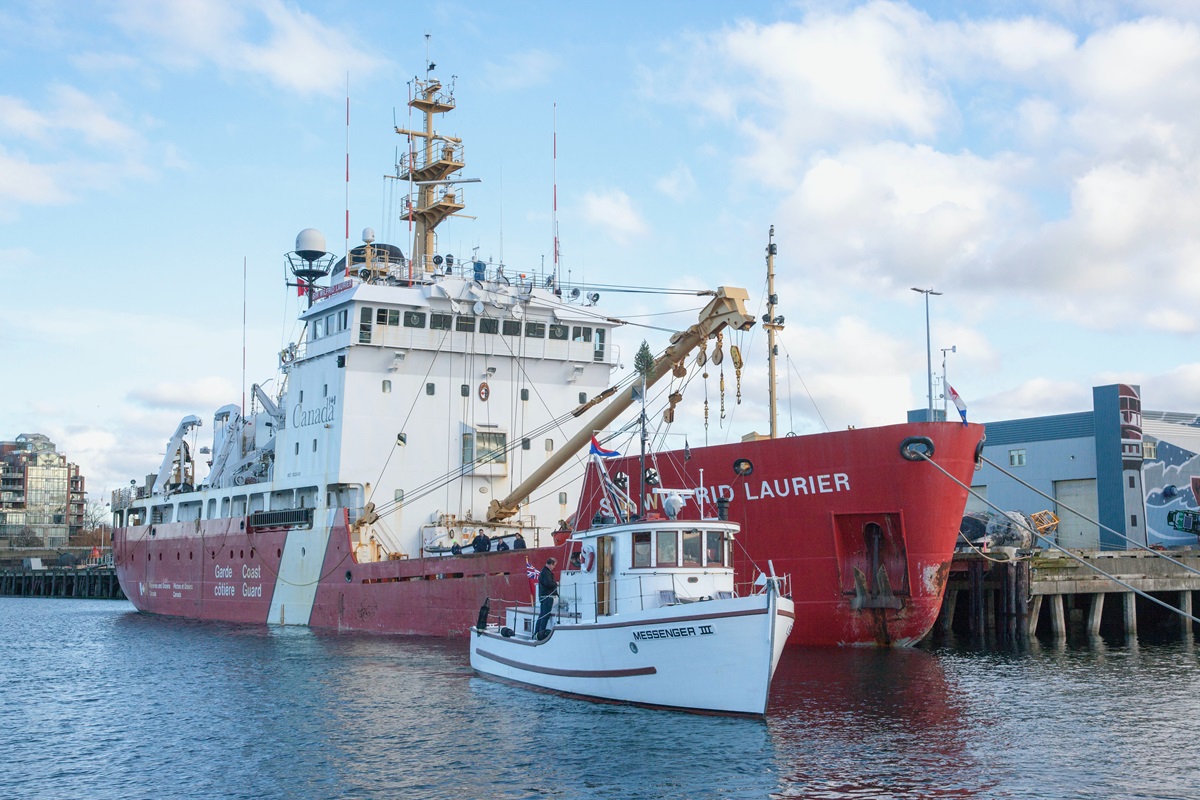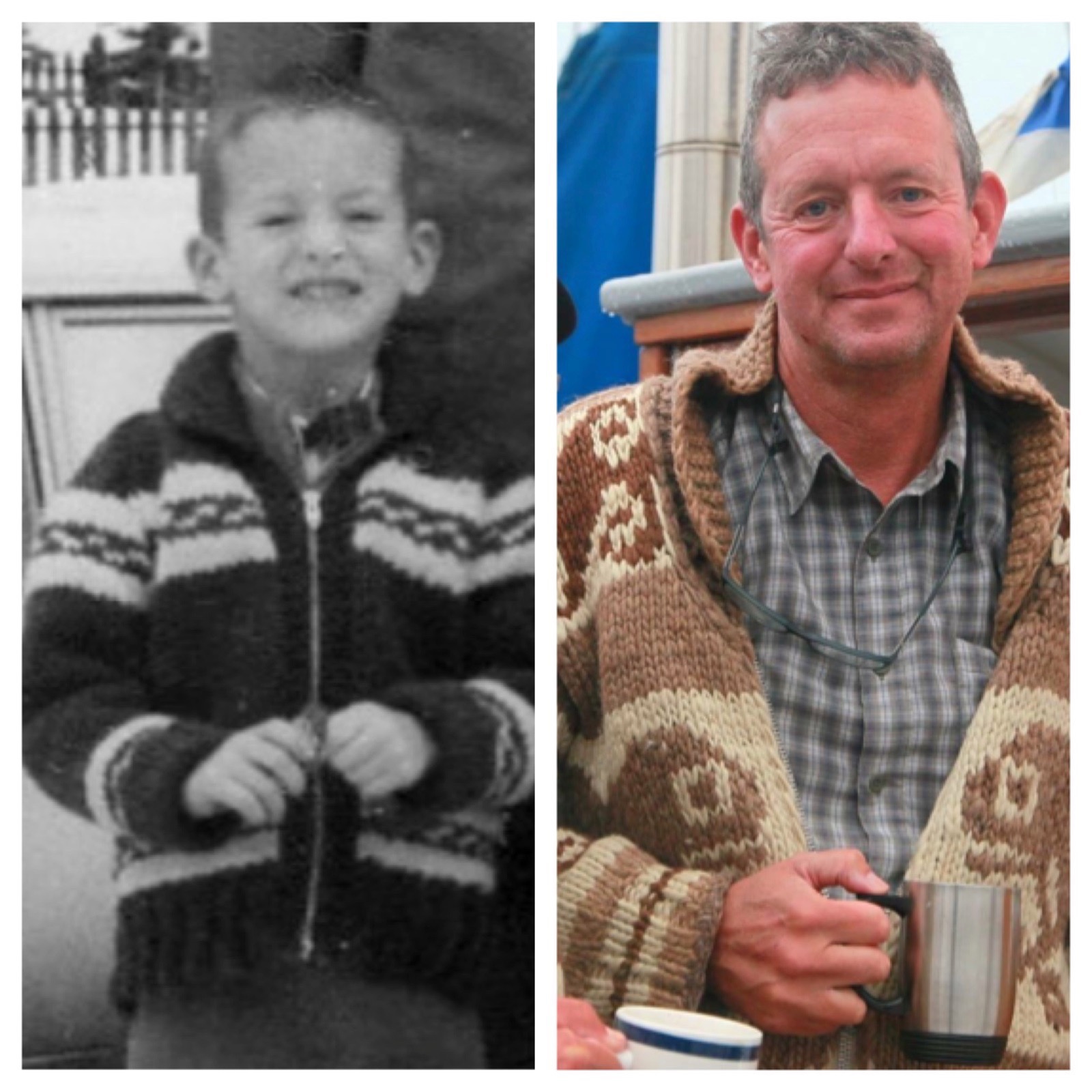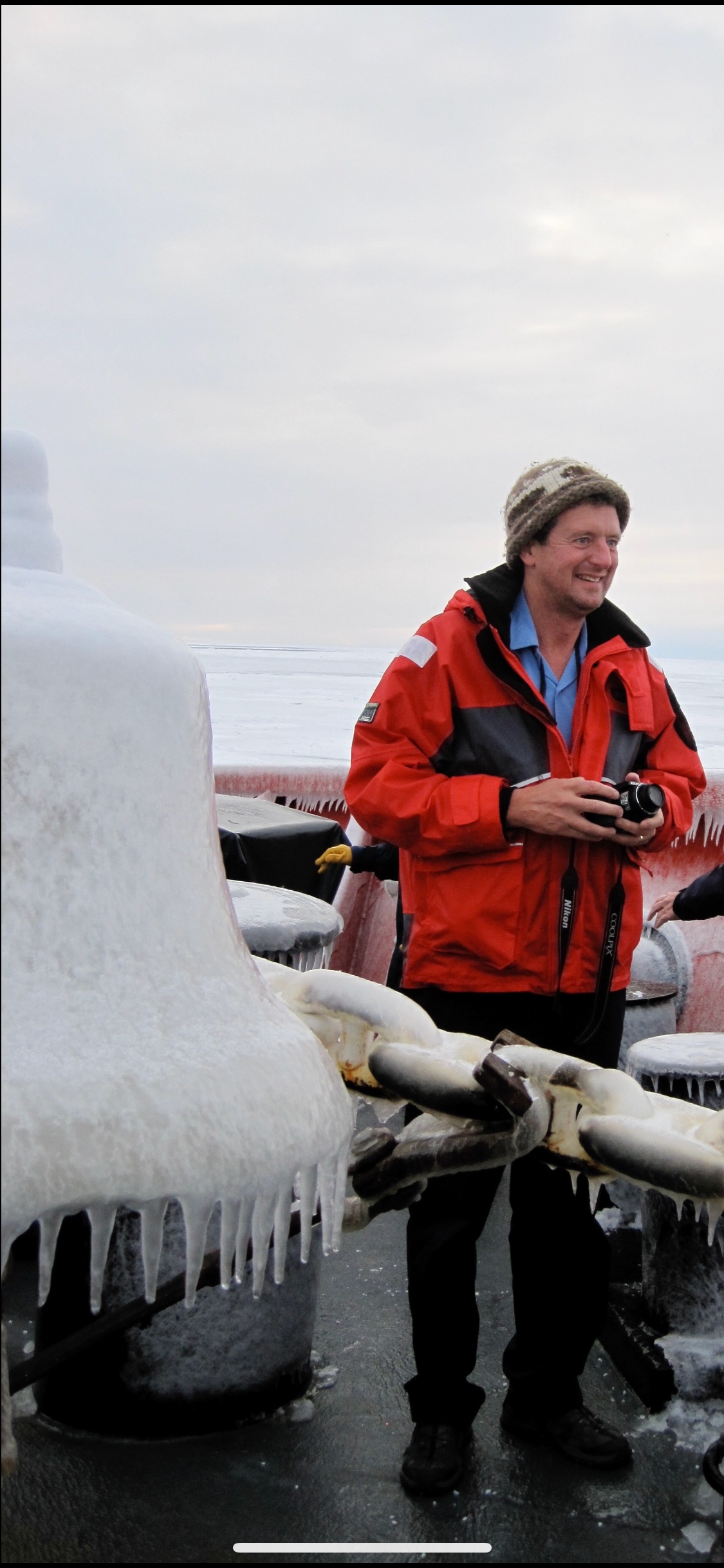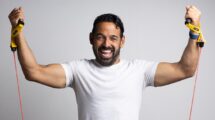Captain Bill Noon tells the tale.
By Jennifer Hartley
For a history buff, captain and explorer, there is nothing more exciting than being part of a discovery at sea close to 180 years in the making. This is even more true, considering it was the last thing Captain Bill Noon was expecting that day—almost 10 years ago—on September 2, 2014.

That summer, as he did every two years since 2010, Noon led his crew on the Canadian Coast Guard icebreaker Sir Wilfred Laurier to the Arctic for chart-making. Only 12 to 13 percent of the Arctic was charted at the time. “It was great fun to explore and get to know the North, which was a passion of mine. Parks Canada heard we were up there and asked if they could join us to hunt for the Franklin Expedition. So for a week or two, they would.”
Happy to have them, Bill was still pessimistic that they would find anything—especially that summer. “It was all serendipitous. We had planned to spend all summer in one area but we got completely iced out. We had to change the plan and search in an entirely different area.” And then the unexpected.
“We sent the helicopter to shore to set up a science station and lo and behold, the crew found the steel base of a ship’s davit. It had the Royal Navy marking and the archeologists and I knew exactly where it came from: one of the Franklin ships. We knew that we were close, and within two or three days we found one of the ships, HMS Erebus. We were ecstatic. But our next reaction was ‘What do we now?’ ”

As might be expected, there were what Noon calls “buckets” of processes. “I discovered I had this thick binder of protocols onboard that I had never actually looked at. I furiously read through it and we had to shut off every form of communication. We couldn’t talk to anyone. In a fabulous twist of irony, people thought something had actually happened to us!”
He was supposed to fly to Ottawa in the aftermath, but he would have none of that, much to the chagrin of the Prime Minister’s Office. Bill wanted to stay where he was. Instead, Minister Leona Aglukkaq flew up. “We celebrated with the local community and the Elders. So much better.”
Did the discovery change his career? “In the early days, I was doing stories all around the world. I even went to Australia. It was a great ride and I met some really neat people, but it didn’t change much. For me, to be part of the riddle was just fantastic. I have always been an amateur historian, so for me, I won the history jackpot.”

Bill is good-natured, always laughing and he oozes kindness. There is something magical when this kind of story happens to one of the nicest people around. Had his original career plan worked out, it would not have happened. “I met with the recruiter for the Air Force when I was 17 or 18. Then I stood up.” (He is over six feet tall.) “He said: ‘Bill, have you ever been in an F104? If you were to eject, it would rip your legs right off’ and then he handed me a form for the Army.”
Thankfully, Bill followed his heart instead. “Everything about the sea is fascinating. You never stop learning. The environment is always changing between nature, the weather and geology.”
Retired since 2019, he spends a great deal of time on Messenger III, his majestic 100-year-old missionary/medical vessel, that merges his love of history and the sea, the perfect combination. When not at sea, he spends time with his partner Sandra.
Ten years since the discovery, he still feels awe. “So many bits and pieces had to come together for us to find the Erebus. It was remarkable when you think about it.” While he has had offers to go back, he is focused on other things. He sits on the board of the Maritime Museum of British Columbia and is passionate about preserving maritime history. “You travel to England and the entire country looks to the sea and they understand marine culture. It is a becoming a hard sell here, a forgotten culture. I want to do my part to not let that happen.” He also chairs Victoria’s annual Classic Boat Festival.
Any regrets? “None. I love my life on the sea.” His enthusiasm is infectious and will make anyone find their sea legs.






